
 Flash News
Flash News
Accident at "Shkalla e Tujanit", truck overturns in the middle of the road, driver injured
Vlora by-pass, work delays and cost increases
Milan are expected to give up on the transfer of Granit Xhaka
Inceneratori jashtë funksionit, përfshihet nga flakët fusha e mbetjeve në Elbasan
Accident on the Lezhë-Shëngjin axis, one injured
Alex Soros at the Rama summits, as an emblem of the "Distinguished Society"

Alfred Lela
Edi Rama borrowed from Tony Blair, one of many imitations, the concept of public-private partnership. This 'innovation' of Blair's Third Way mixes private enterprise with state resources; in the case of Albania, it is probably the biggest failure in governance. The British case, which wanted to cancel the slowness of the state bureaucracy through a partnership with the speed of private enterprise, in Albania married two greedy types: the corrupt official and the shady businessman.
Ilir Beqja, former minister of Health, is the symbol of this failure and of this economic-political profile. This did not make it in Mediterranean-Oriental Albania like everything else Anglo-Saxon.
Edi Rama stuck this knife in the public treasury and in the back of the Albanian state, but now he is doing the almost unthinkable: twisting it. He has decided to transfer two columns in which lies virtually the entire weight of the state to Public Private Partnership: justice and foreign policy.
Without any excellent observational skills, the followers of the regional summits in the Balkans may have noticed the presence, increasingly carefree and emblematic of Alexander Soros, the son of George Soros. Soros Jr. has made room in these meetings by passing from Tirana and the will of the Albanian Prime Minister, Edi Rama.
Has Mr. Rama and other Balkans countries transferred their foreign policy to the PPP scheme? Or, by doing this, have they finally admitted that they are failed states by choosing subcontractors to carry out their foreign policy in regard to allies or opponents?
The state or diplomatic protocol does not envisage other (non-state) actors, neither in talks nor in the "family photo" of international summits. I don't think you can see, for example, the Koch brothers in the picture of any of the G9 summits. Of course, political and state actors are pushed or influenced by actors and spheres of influence, but this is all behind the scenes. The staging of 'influencers' damages both parties, the influencer and the influenced. At least, this was the meaning of this interdependent relationship until recently, when states were led by statesmen and when tycoons, despite their power, understood that in public policy, there are some impassable red lines.
So what is Edi Rama doing with Alex Soros at the Balkan 'fair': is he creating a foreign policy of spectacle in times of war, or is he opposing the conventional political and military powers with the doctrine of an Open Society, in which countries like Albania, which has neither society nor muscles, cannot contribute anything?!
Someone has to tell someone that to talk about the dangers of war, which can descend from the Russian steppes to the Illyrian peninsula, and to have, at best, a Sorosian voodoo in the counterattack program is at least short-sighted.
For Edi Rama, this probably doesn't mean much. From the non-political perspective, he may be designing men's skirts and women's pants in a society that is no longer open but torn. Still, Albania is not a product but a bequeath of many pioneering minds and hands.
To empty the country dry and lend its public resources to subcontractors is not a sign of betrayal but of a curse.
Latest news








Golem and Qerret without water at the peak of the tourist season
2025-07-01 21:09:32

Euractiv: Italy-Albania migrant deal faces biggest legal challenge yet
2025-07-01 20:53:38
BIRN: Brataj and Fevziu victims of a 'deepfake' on Facebook
2025-07-01 20:44:00

Vlora by-pass, work delays and cost increases
2025-07-01 20:24:29



Milan are expected to give up on the transfer of Granit Xhaka
2025-07-01 19:41:25

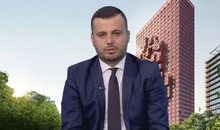
The silent but rapid fading of the towers' euphoria
2025-07-01 18:58:07
Donald Trump's daughter says 'goodbye' to June with photos from Vlora
2025-07-01 18:48:47

Tirana vote recount, Alimehmeti: CEC defended manipulation
2025-07-01 18:15:05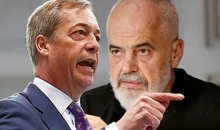

Left Flamurtari, striker signs with another Albanian club
2025-07-01 17:43:14
Accident on the Lezhë-Shëngjin axis, one injured
2025-07-01 17:19:35
June temperature records, Italy limits outdoor work
2025-07-01 17:03:15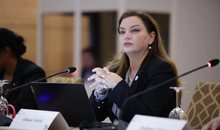

Meet Kozeta Miliku, named one of the top five scientists in Canada
2025-07-01 16:32:12
"Arsonist" arrested for repeatedly setting fires in Vlora (NAME)
2025-07-01 16:29:45
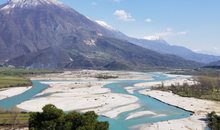
The ecological integrity of the Vjosa River risks remaining on paper
2025-07-01 16:09:40
Heat Headache/ Causes, Symptoms and Measures You Should Take
2025-07-01 16:01:13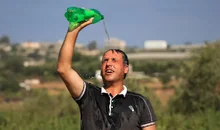
UN: The world must learn to live with heat waves
2025-07-01 15:54:50

Three cars collide in Tirana, one of them catches fire
2025-07-01 15:38:16

Shehu: Whoever doesn't want Berisha, doesn't want the opposition 'war'!
2025-07-01 15:19:20
Berisha requests the OSCE Assembly: Help my nation vote freely
2025-07-01 15:11:46
Be careful with medications: Some of them can harm your sex life
2025-07-01 15:00:32

'Golden Bullet'/ Lawyers leave the courtroom, Altin Ndoc's trial postponed again
2025-07-01 14:44:52
EU changes leadership, Kosovo in a number of places
2025-07-01 14:40:01
Should we drink a lot of water? Experts are surprised: You risk hyponatremia
2025-07-01 14:30:20



Lëpusha beyond Rama's postcards: A village that is being silently abandoned
2025-07-01 13:41:56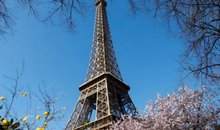
Scorching temperatures in France close the Eiffel Tower
2025-07-01 13:29:35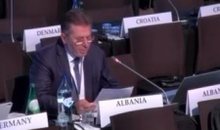
Media: China, Iran and North Korea, a threat to European security
2025-07-01 13:20:12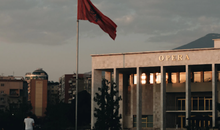
Albania drops in global index: Less calm, more insecure
2025-07-01 13:09:35
Road collapses, 5 villages in Martanesh risk being isolated
2025-07-01 13:03:04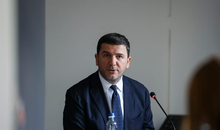
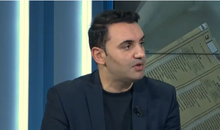
Këlliçi: Opposition action to be decided in September
2025-07-01 12:48:49
Four tips for coping with the heat wave
2025-07-01 12:38:53
Car hits pedestrian on Transbalkan road
2025-07-01 12:27:09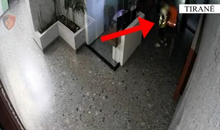
Authors of 9 robberies, Erjon Sopoti and Abdullah Zyberi arrested
2025-07-01 12:15:56

He abused his minor daughter, this is a 36-year-old man in custody in Fier
2025-07-01 11:50:34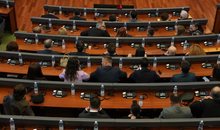
The constitution of the Kosovo Assembly fails for the 40th time
2025-07-01 11:40:08




EU confirms support for the Western Balkans
2025-07-01 10:50:45
Serious in Fier! Father sexually abuses his minor daughter
2025-07-01 10:32:33
One year since the passing of the colossus of Albanian literature, Ismail Kadare
2025-07-01 10:25:26


They supplied the 'spaçators' with drugs, two young men are arrested in Tirana
2025-07-01 09:54:09
Europe is "scorching", how dangerous are high temperatures?
2025-07-01 09:48:56

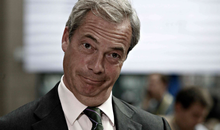
Nigel Farage in Albania: but why?
2025-07-01 09:13:12
Xama: The "Partizani" dossier is quite weak and without facts!
2025-07-01 09:04:47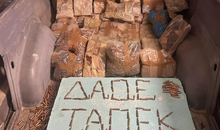

Foreign exchange, the rate at which foreign currencies are sold and bought
2025-07-01 08:35:39
Fabricators again warn of factory closures and job cuts
2025-07-01 08:21:30
Horoscope, what do the stars have in store for you today?
2025-07-01 08:08:59
Scorching hot, temperatures reaching 40°C
2025-07-01 07:57:12
Morning Post/ In 2 lines: What mattered yesterday in Albania
2025-07-01 07:42:59
Recount after May 11, Braho: I had no expectations for massive vote trafficking
2025-06-30 22:54:18

Second hearing on the protected areas law, Zhupa: Unconstitutional and dangerous
2025-06-30 22:18:46



Israel-Iran conflict, Bushati: Albanians should be concerned
2025-06-30 21:32:42

Fuga: Journalism in Albania today in severe crisis
2025-06-30 21:07:11
"There is no room for panic"/ Moore: Serbia does not dare to attack Kosovo!
2025-06-30 20:49:53

Temperatures above 40 degrees, France closes nuclear plants and schools
2025-06-30 20:28:42
Lavrov: NATO is risking self-destruction with new military budget
2025-06-30 20:13:54
Turkey against the "Bektashi state" in Albania: Give up this idea!
2025-06-30 20:03:24

Accused of sexual abuse, producer Diddy awaits court decision
2025-06-30 19:40:44


